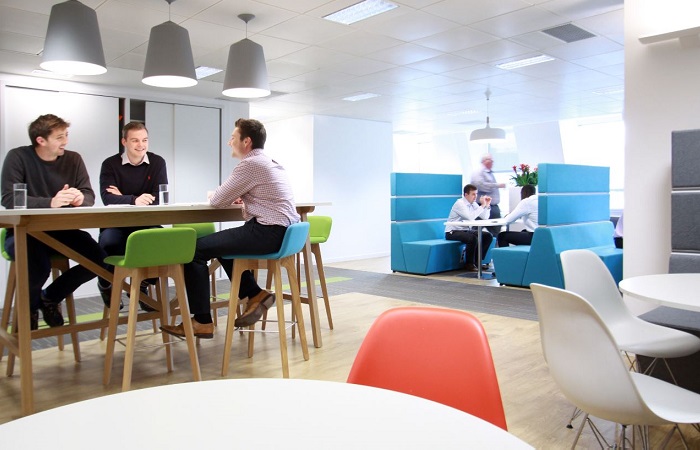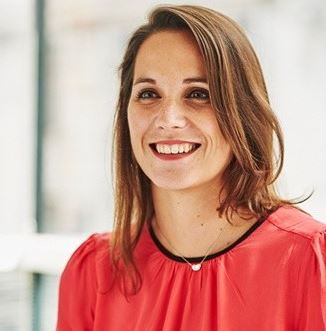
For Gerald Eve, a key factor in its benefits proposition is that it reflects its culture of putting its people at the centre of the firm. Helen Foley, HR director, says: “Our strategy is to have benefits that really try and support [employees] in reaching their potential in all areas of life, whether that’s personal or professional.”
This means that the property consultancy takes a holistic approach to benefits to ensure that employees receive support in financial, social, mental and physical areas of their lives.
An example of this is one of the benefits that the employer introduced five years ago: a rental deposit loan scheme. The scheme was introduced because Gerald Eve found that young graduates joining the business did not have the lump sum necessary to make the move to live in London. The scheme is interest-free, and operates in a similar way to season ticket loan schemes. “It hopefully gives people a little bit more flexibility in making the move, and a bit more security and stability,” says Foley.
The holistic approach won Gerald Eve the best healthcare and wellbeing benefits – large employer, category at the 2020 Employee Benefits Awards. Part of the strategy behind this is to support wellbeing across the ‘whole self’. This included raising awareness of different areas of financial, social, mental and physical wellbeing with webinars and directing employees to further information. Each month, the organisation runs awareness campaigns and has covered topics such as nutrition, menopause, musculoskeletal and mental health.
It also partners with other organisations on its awareness campaigns, including its private medical insurance (PMI) provider Vitality on wellbeing and prevention awareness, and its pension provider Hargreaves Lansdown on one-to-ones, targeted presentations and seminars on financial wellbeing.
“What is important is that it is a holistic approach,” says Foley. “It’s about having a range so that employees at different stages of their careers and their lives feel that they have the support they need.”
Wellbeing focus
The Covid-19 (Coronavirus) pandemic has, of course, influenced the way in which many employers support their staff through benefits; Gerald Eve took it as an opportunity to broaden its health and wellbeing provision. It previously provided employees with a gym or fitness allowance, which could be used, for example, to buy a subsidised gym membership. However, with the nation-wide lockdowns that meant all gyms and leisure centres had to close for long periods, Gerald Eve tweaked this into a wellbeing allowance. Foley explains: “We really broadened it out to make sure that it covered not just physical health in gyms, but mental health as well. So if people wanted to get a subscription to [the apps] Headspace or Calm, or they wanted to go on online meditation classes, this allowance would cover all of those scenarios. We want people to be to be healthy and happy, and that doesn’t have to mean going to the gym.”
The pandemic and consequent work-from-home directive meant that many of the benefits Gerald Eve offers could no longer take place, for example weekly yoga and Pilates classes which were held in its London office. In its place, the employer hosted online classes, which could then be accessed by employees based in other locations.
It has also been working closely with Vitality on online exercise and mindfulness webinars. It has also ramped up its focus on mental wellbeing with resilience webinars. “We also recognised that the second lockdown [in November] had a different impact than the first one and so we started doing weekly ‘How are you really’ sessions,” explains Foley.
These calls are facilitated by a member of HR, one of the organisation’s mental health first aiders, or a mixture of people, and are a safe space where employees can speak to others about any concerns they may have.
The pandemic also highlighted the importance of constant and clear communication within the organisation. “Something we looked at quite quickly was communication,” explains Foley. “We instigated a weekly newsletter to provide as much information as we could, as much transparency. We recognised that uncertainty is probably one of the more damaging feelings, [so we tried] to reduce that as much as possible. It also acted as a way of communicating about benefits.”
While working remotely, Gerald Eve has been recreating its culture as much as it can among employees to continue its sense of community. “We had firm-wide photography competitions, bake off competitions, team exercise challenges,” says Foley. “Covid has definitely focused our benefits around wellbeing but also around how we communicate and reach all of our employees.”
Benefits communication
Gerald Eve has around 545 employees based at nine offices around the UK, so effective communication has always been a priority. It uses a variety of platforms including a newly revamped intranet and a firm-wide newsletter. When it is time for an employee to renew their benefits, the employer sends targeted emails, which also serve to gain employee feedback. Foley says: “We do get a lot of positive feedback. We also have a very open culture so when people come forward with suggestions and ideas, they let us know if things aren’t working or if we could implement something new or different.”
Looking ahead to the new year, Gerald Eve plans to keep its focus on employee wellbeing, especially working during such a turbulent time. “January and February aren’t necessarily the most uplifting months, so how can we make sure we’re looking after people and keeping them engaged, happy and healthy?” says Foley. “As new ways of working become more apparent, we need to look at how can benefits reflect that.”
At a glance
Gerald Eve is a property consultancy that advises clients on real estate services. Some of its typical job roles are chartered surveyor and town planners, from graduate to partner level. It also has a full spectrum of business support.
It has 545 employees based at nine offices around the UK. The average age of employee is 39 and average length of service is six years. The workforce is 42% female and 58% male.
Primary business objectives that impact employee benefits
To improve diversity within the real estate industry; how Gerald Eve can improve access to, and awareness of, the industry.
Career history 
Helen Foley joined Gerald Eve as HR director in March 2020.
She previously worked at Gerald Eve from 2013 as HR adviser and left in 2018 as senior HR manager. Foley’s HR career began on an oil company’s graduate programme. Returning to Gerald Eve in her first HR director role has been one of the highlights of her career.